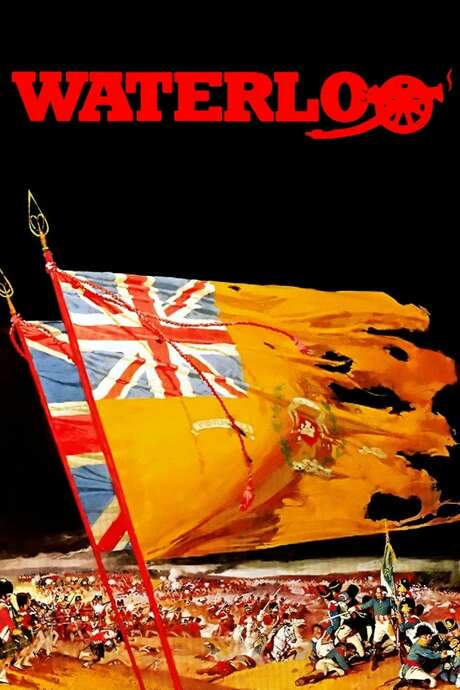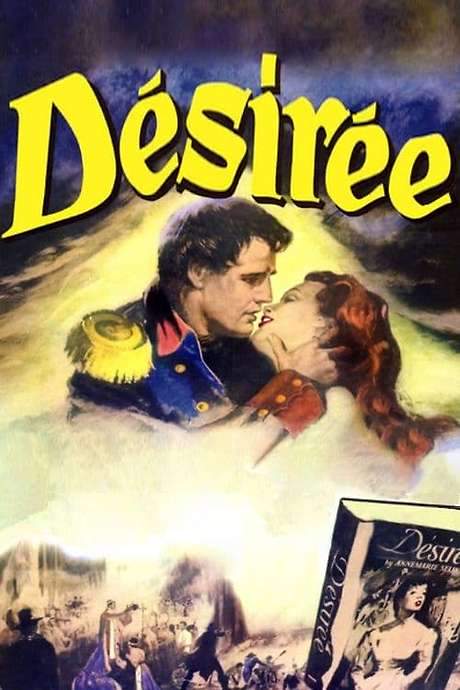
Napoleon 2023
Directed by

Ridley Scott
Made by
Apple Studios
Test your knowledge of Napoleon with our quiz!
Napoleon Plot Summary
Read the complete plot summary and ending explained for Napoleon (2023). From turning points to emotional moments, uncover what really happened and why it matters.
In 1793, against the backdrop of the French Revolution, young army officer Napoleon Bonaparte witnesses the tragic beheading of Marie Antoinette via guillotine. Later that same year, Revolutionary leader Paul Barras appoints Napoleon to manage the Siege of Toulon. Demonstrating his military prowess, he takes the city and adeptly drives back British forces using artillery.
As the tide of the Revolution shifts following the fall of Maximilien Robespierre, French leaders, including Napoleon, strive to restore order. Once again deploying his artillery, Napoleon quashes a royalist uprising on 13 Vendémiaire, a pivotal moment in 1795.
In the midst of this turmoil, Napoleon pursues the aristocratic widow Joséphine de Beauharnais, portrayed by Vanessa Kirby, and the two eventually enter into marriage. Their personal lives, vibrant with passion, remain unfulfilled in terms of children. In 1798, during his military campaign in Egypt, Napoleon achieves a stirring victory at the Battle of the Pyramids, yet returns home hastily upon learning that Joséphine has taken a lover, the younger Hippolyte Charles.
Though the Directory criticizes him for abandoning his troops, Napoleon boldly condemns their ineffective leadership. Alongside key collaborators like Talleyrand, Fouché, Sieyès, and Ducos, he orchestrates a coup, rising to the position of First Consul.
In 1804, the ambitious Napoleon is crowned Emperor of the French by the pope—an event marked by his defiant act of placing the crown upon his own head. In a strategic bid for power, Talleyrand proposes an alliance to Austria, though the Austrians dismiss this overture. Undeterred, Napoleon showcases his military talent a year later at the Battle of Austerlitz, decisively defeating both Austrian and Russian forces and forcing a retreat over treacherous, frozen lakes.
Following his military triumphs, Napoleon’s mother pressures him to impregnate a mistress, proving that Joséphine is incapable of bearing children. In 1810, their marriage ends in divorce, culminating in a public confrontation where Napoleon slaps Joséphine when she initially refuses to acknowledge the decree. Despite this, they maintain an amicable relationship, exchanging letters filled with warmth. Subsequently, Napoleon marries Marie Louise of Austria, who shortly after gives birth to a son.
The year 1812 sees Napoleon invade Russia after Alexander backtracks on their peace agreement. Despite facing fierce resistance during the Battle of Borodino, he finds Moscow deserted and shortly thereafter set ablaze. With a significant loss of life on his retreat, Napoleon returns to France, having suffered a grave blow to his forces.
By 1814, a coalition of forces compels Napoleon to abdicate and sends him into exile on Elba. In 1815, upon hearing troubling news regarding Joséphine’s health, he makes a daring escape and returns to reclaim power in France. Tragically, Joséphine, now confined to the Château de Malmaison, passes away before he can reach her. King Louis XVIII dispatches the Fifth Regiment to detain him, but Napoleon’s charisma turns them to his cause.
At the Battle of Waterloo in June, Napoleon assembles an army to confront the British under the leadership of Rupert Everett](/actor/rupert-everett). However, French cavalry assaults meet fierce resistance from British infantry formations. In a desperate bid, Napoleon urges his remaining soldiers forward, but they are met with devastation inflicted by reconstituted enemy lines. As the situation deteriorates, the forces of Prussian Marshal Blücher arrive to support Wellington, breaking the French lines. In his retreat, Napoleon respectfully salutes Wellington.
Ultimately, Napoleon is exiled once more, this time to the remote island of Saint Helena. There, he engages with children, reflects on his life while penning memoirs that would later gain worldwide acclaim, and crafts a narrative of history portraying himself in a favorable light.
In 1821, Napoleon passes away, hearing the voice of Joséphine calling him to reunite. An epilogue poignantly notes the staggering toll of the Coalition Wars, which claimed around 3 million lives between 1792 and 1815.
Napoleon Timeline
Follow the complete movie timeline of Napoleon (2023) with every major event in chronological order. Great for understanding complex plots and story progression.
Witnessing Marie Antoinette's Execution
In 1793, against the backdrop of the French Revolution, young army officer Napoleon Bonaparte witnesses the tragic beheading of Marie Antoinette by guillotine. This event serves as a stark introduction to the brutal realities of revolutionary turmoil and shapes his views on power and leadership.
Appointed to Siege of Toulon
Later in 1793, Revolutionary leader Paul Barras appoints Napoleon to manage the Siege of Toulon. Demonstrating exceptional military prowess, he successfully takes the city, effectively utilizing artillery to drive back British forces and establishing his reputation.
Quelling the Royalist Uprising
In 1795, as the Revolution's tide shifts, Napoleon quashes a royalist uprising on 13 Vendémiaire. His decisive use of artillery plays a pivotal role in restoring order, solidifying his position as a key military leader in France.
Romancing Joséphine de Beauharnais
Amid the political chaos, Napoleon pursues the aristocratic widow Joséphine de Beauharnais. Their passionate relationship eventually leads to marriage, although they face challenges with unfulfilled dreams of having children.
Victory at the Battle of the Pyramids
In 1798, during a military campaign in Egypt, Napoleon achieves a stirring victory at the Battle of the Pyramids. This success is overshadowed by personal turmoil as he returns home hastily upon discovering Joséphine's infidelity.
Coup and Rise to Power
Facing criticism from the Directory for abandoning his troops, Napoleon orchestrates a coup alongside key collaborators like Talleyrand and Fouché. His actions lead to his appointment as First Consul, marking the start of his political ascent.
Crowned Emperor of the French
In 1804, Napoleon is crowned Emperor of the French in a grand ceremony, defiantly placing the crown on his own head. This moment symbolizes his consolidation of power and ambition to reshape France's destiny.
Defeating Austria at Austerlitz
In 1805, Napoleon showcases his military genius at the Battle of Austerlitz, where he decisively defeats both Austrian and Russian forces. This victory cements his reputation as a formidable leader and alters the balance of power in Europe.
Divorce from Joséphine
In 1810, Napoleon's marriage to Joséphine ends in divorce, leading to a public confrontation when he slaps her for initially refusing to accept the decree. Despite the dissolution of their marriage, they maintain a warm correspondence.
Invasion of Russia
In 1812, Napoleon invades Russia after Alexander goes back on a peace agreement. The campaign leads to the disastrous Battle of Borodino and the eventual abandonment of Moscow, marking a significant downturn in Napoleon's fortunes.
Exile to Elba
By 1814, a coalition of forces leads to Napoleon's forced abdication and subsequent exile to the island of Elba. This marked the beginning of a steep decline in his power and a significant moment in European history.
Return and Power Grab
In 1815, Napoleon escapes from Elba, fueled by news of Joséphine's declining health. He returns to France, reclaiming power through his persuasive charisma, despite the threat of arrest from King Louis XVIII.
Battle of Waterloo
During the Battle of Waterloo in June 1815, Napoleon confronts British forces but faces fierce resistance. The arrival of Prussian forces leads to devastating losses for Napoleon, marking the end of his final campaign.
Exile to Saint Helena
Ultimately, Napoleon is exiled again, this time to the remote island of Saint Helena. There, he reflects on his life and writes memoirs, creating a narrative that would shape his historical legacy for generations.
Death in 1821
In 1821, Napoleon passes away on Saint Helena, claiming to have heard Joséphine’s voice calling him to reunite. His death concludes a tumultuous life marked by ambition, conflict, and profound historical impact.
Napoleon Characters
Explore all characters from Napoleon (2023). Get detailed profiles with their roles, arcs, and key relationships explained.
Napoleon Bonaparte (Joaquin Phoenix)
Napoleon is depicted as a brilliant military strategist and ambitious leader whose desire for power drives him through various personal and professional challenges. His character is complex, showcasing both his formidable talents and profound vulnerabilities, especially in matters of the heart. Over time, he evolves from a passionate general to a self-crowned emperor, ultimately confronting the repercussions of his choices.
Josephine Bonaparte (Vanessa Kirby)
Josephine is portrayed as a strong yet emotionally troubled woman who occupies a significant place in Napoleon's life. Her initial allure and later infidelity create a poignant dynamic that affects Napoleon deeply. Despite their tumultuous relationship, she remains a vital figure in his life, symbolizing both love and the complications that come with ambition.
Paul Barras (Tahar Rahim)
Paul Barras is a key revolutionary figure who recognizes Napoleon's potential and appoints him to crucial military posts. His character embodies the political machinations of the time, influencing the unfolding of Napoleon's career. As a Revolutionary leader, Barras navigates the chaotic tides of the revolution while determining who will shape France's future.
Napoleon Settings
Learn where and when Napoleon (2023) takes place. Explore the film’s settings, era, and how they shape the narrative.
Time period
1793-1821
The movie unfolds during the significant period of the French Revolution and the subsequent rise of Napoleon Bonaparte to power. It captures the shifting political landscape from chaos in the late 18th century through to the establishment of the French Empire and Napoleon's eventual downfall. The timeline also highlights pivotal moments such as his crowning as Emperor in 1804 and the tumultuous Coalition Wars that ensued until his death in 1821.
Location
Toulon, Egypt, Austerlitz, Elba, Saint Helena
The Siege of Toulon was a crucial military engagement during the French Revolution, showcasing Napoleon's budding military genius. Egypt serves as the backdrop for his daring military campaigns, culminating in the famous Battle of the Pyramids. The Battle of Austerlitz, a decisive victory against Austrian and Russian forces, marked a peak in his military career. After his abdication, Napoleon was exiled to the island of Elba, and later, he spent his final days on the remote and desolate island of Saint Helena.
Napoleon Themes
Discover the main themes in Napoleon (2023). Analyze the deeper meanings, emotional layers, and social commentary behind the film.
⚔️
Ambition
Ambition is a driving force in Napoleon’s life and career, as he navigates through the turbulent political landscape of revolutionary France. His relentless pursuit of power leads him to rise from a military officer to Emperor, shaping the fate of nations. This ambition, however, comes at great personal costs, impacting his relationships and culminating in his exile.
❤️
Love and Loss
The theme of love and loss is prevalent in Napoleon's relationship with Joséphine, which oscillates between passion and heartache. His deep affection for her is intersected by the harsh realities of political ambitions and betrayal. Their eventual divorce highlights the emotional toll of his relentless pursuit of power and the heartbreak of missing connections.

Coming soon on iOS and Android
The Plot Explained Mobile App
From blockbusters to hidden gems — dive into movie stories anytime, anywhere. Save your favorites, discover plots faster, and never miss a twist again.
Sign up to be the first to know when we launch. Your email stays private — always.
Napoleon Ending Explained
Unravel the ending of Napoleon (2023) with our detailed explanation. Understand the final scenes, character fates, and unresolved questions.
Napoleon’s story ends with his surrender at the Battle of Waterloo and his subsequent exile to Saint Helena, a remote island where he spends his final years in relative obscurity. After a failed attempt to reclaim power, Napoleon admits defeat and wishes to live in Britain, but this is quickly dismissed by the Duke of Wellington. His health declines over the years, and even as he faces his mortality, his thoughts remain deeply rooted in his love for Josephine and France. His last words reveal this enduring affection, emphasizing how central they were to his life. The film concludes with Napoleon’s death, reflecting on the immense toll of his military campaigns—over 3 million lives lost across the battles he led. Despite his fall from power and the hardships he endured, his legacy endures as a complex figure of ambition, conquest, and profound influence on history.
Napoleon Spoiler-Free Summary
Discover the spoiler-free summary of Napoleon (2023). Get a concise overview without any spoilers.
In a France still trembling from revolution, the streets of Paris and the echoing halls of power are drenched in ambition, uncertainty, and the promise of a new order. The film opens amid the restless aftermath of a toppled monarchy, where whispers of destiny swirl through crowded cafés and grand estates alike. Ridley Scott paints the era with sweeping panoramas and intimate close‑ups, capturing the clash between lofty ideals and the gritty realities of a nation in flux.
At the heart of this restless world stands Napoleon, a strikingly charismatic officer whose brilliance on the battlefield mirrors a relentless drive to reshape his country. His fierce intellect and magnetic presence draw both admiration and suspicion, setting him on a collision course with the very forces that forged modern Europe. Alongside him, Josephine emerges as a captivating force of her own—an aristocratic widow whose wit, beauty, and emotional depth ignite a complex, passionate bond that will test the limits of loyalty, love, and ambition.
The tone balances the grandeur of historic epic with a deeply personal character study. Lush cinematography bathed in candlelight and battlefield haze contrasts with quieter, candle‑lit rooms where political intrigue and intimate conversations unfold. A pulsing score underlines the mounting tension, while the screenplay weaves together the public spectacle of power with the private turmoil of hearts caught in its wake.
As Napoleon navigates the treacherous currents of Revolutionary France, his every move hints at a larger destiny waiting just beyond the horizon—an ascent that promises both glory and inevitable sacrifice. The story promises a journey through the intoxicating allure of authority, the fragile nature of relationships forged in fire, and the timeless question of whether a single individual can truly rewrite history.
Can’t find your movie? Request a summary here.
Movies with Similar Twists and Themes
Uncover films that echo the narrative beats, emotional arcs, or dramatic twists of the one you're exploring. These recommendations are handpicked based on story depth, thematic resonance, and spoiler-worthy moments — perfect for fans who crave more of the same intrigue.
Featured on this page

What's After the Movie?
Not sure whether to stay after the credits? Find out!
Explore Our Movie Platform
New Movie Releases (2025)
Famous Movie Actors
Top Film Production Studios
Movie Plot Summaries & Endings
Major Movie Awards & Winners
Best Concert Films & Music Documentaries
Movie Collections and Curated Lists
© 2025 What's After the Movie. All rights reserved.








